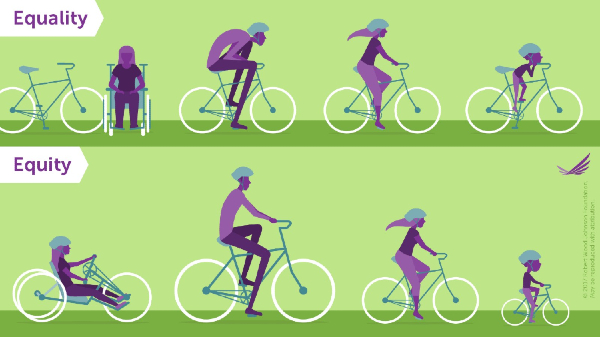About You. For You. Empowering you to receive the personalized care and services you need to stay healthy.
Memorial Hermann has joined a growing number of institutions across the nation in prioritizing health equity to advance how we address the unique needs of our communities.
To achieve this, we have redesigned many processes to consider the diverse needs of the communities we serve, include improving how we capture demographic and social determinants of health data, such as race, ethnicity, language, gender identity, sexual orientation, disability status, education, employment and more.
As part of our About You. For You. campaign, we are providing our patients an opportunity to share personal information with us during the registration and intake process that will help ensure you receive more personalized care and the services you need to stay healthy, and is just one of the ways we are putting our Service Standards into action:
- SAFE: We prioritize the physical and psychological safety and well-being of all who enter the Memorial Hermann environment, ensuring every individual feels confident in the high-quality care and service we deliver.
- CARING: We nurture relationships by recognizing diversity, building trust and valuing others.
- PERSONALIZED: We make every person feel seen and heard by recognizing their unique perspective.
- EFFICIENT: We create high-quality experiences for our patients, visitors and colleagues through process improvement, convenience and collaboration.
Frequently Asked Questions
According to the Centers for Disease Control and Prevention (CDC), health equity is the state in which everyone has a fair and just opportunity to attain their highest level of health. As part of Memorial Hermann’s mission to create healthier communities, we are committed to improving health for all, which requires eliminating barriers and creating pathways to ensure everyone has a fair and just opportunity to attain their highest level of health.
(Robert Wood Johnson Foundation; Source)
Our ability to ensure you and your family receive all the quality care and services available to you, including access to vital programs, is enhanced by our knowledge of you. The answers to these questions not only help us build a more trusting relationship and deeper understanding with you, our patient, but empower you to help improve the personalized care you receive. Your responses to questions like race, ethnicity and preferred language ensures that:
- You receive care that is culturally responsive and appropriate for your needs.
- Your care team has a better understanding of opportunities in your health journey.
- You are connected with resources that may be helpful to you.
- You are being provided a personalized care plan, which is one of our service commitments.
Sexual orientation and gender identity data collection has been recommended by both the National Academy of Medicine (NAM) and the Joint Commission as a way to learn which populations are being served and to measure the quality of care provided to all people, including people who identify as Lesbian, Gay, Bisexual, Transgender and Queer (LGBTQIA+). Collecting this information helps Memorial Hermann better understand all of the communities we serve.
The information you provide is confidential and will be seen by your health care providers and those authorized to see your medical record information.
Certain demographic information, but not all, is required. For the non-required information, we do encourage you to share as much information as you are comfortable with so that we can get to know you better and personalize your care plan. Should you feel uncomfortable answering these questions at any time, please let us know.
